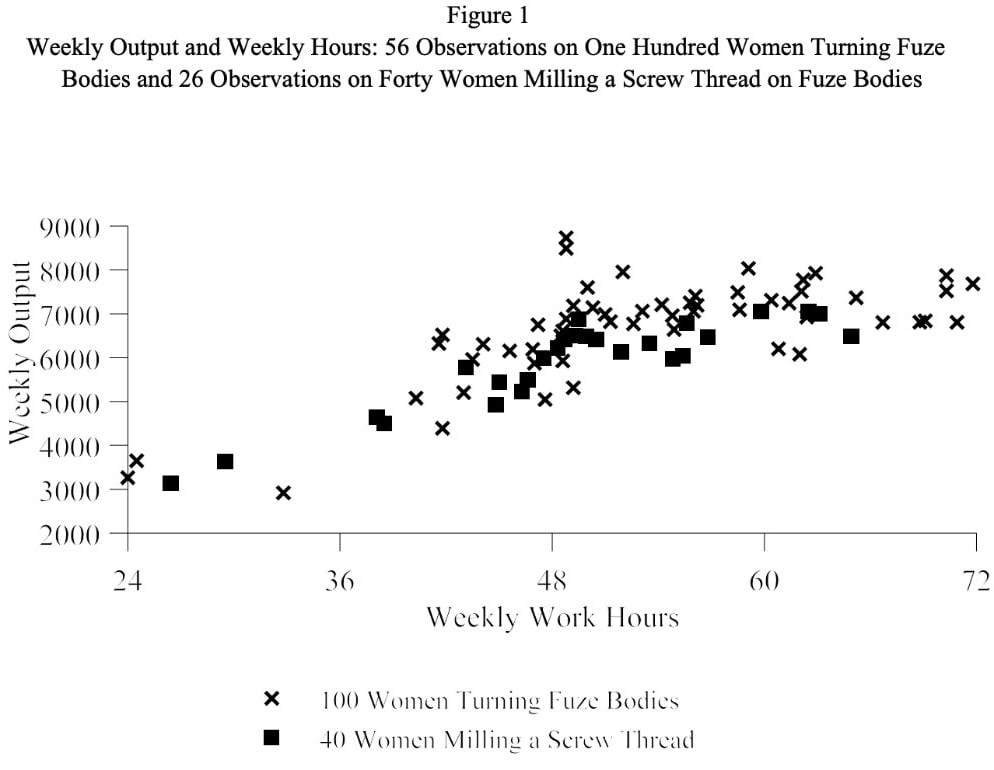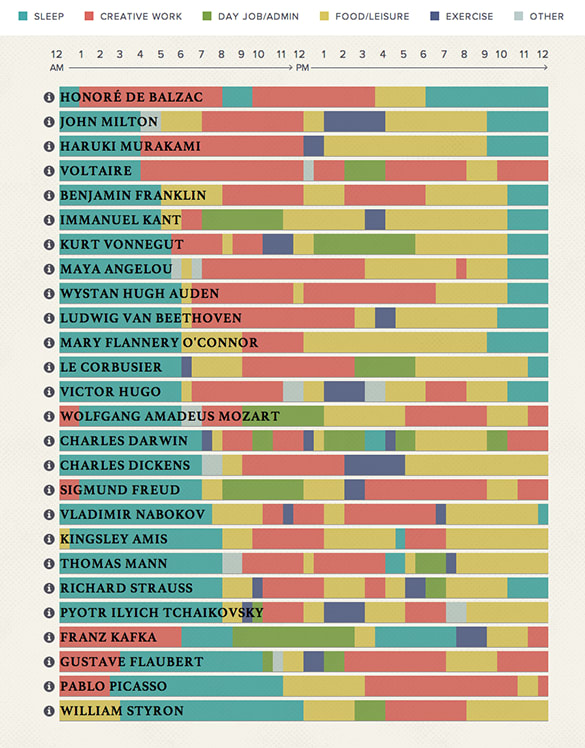I don't have an answer but I have two sources in my Anki deck.
On manual labor:

Source: https://docs.iza.org/dp8129.pdf
For creative work of geniuses I have this chart:

Source: https://mediaocu.com/2015/03/30/daily-routines-of-geniuses-and-how-mine-measures-up/
None of them seems to have an 8 hour day job. Kafka is closest, Vonnegut is second; the former puts a nap between the day job and the creative work, the latter does the creative work first.
Using myself as a data point (self-diagnosed aspie / adhd), the key factors are:
- do I have all the requirements / data I need -- or is it obvious where I can find it?
- will I be interrupted during my work?
If everything is clear and there are no interruptions, I could probably work 16 hours a day (assuming someone brings me food -- or make it 15 hours a day and I will buy something myself).
But give me unclear or self-contradictory instructions, internal documentation written by people who hate to write, frequent meetings, two or three tasks to work on in parallel... and the number can drop to 0.
Cal Newport says something to the effect that the median capacity for high-intensity focus is about four hours per day in Deep Work. I think this can bounce around over time for individuals – especially regarding psychological dispositions like bipolar or autism, which proffer an immense capacity for hyper-fixation at the cost of occasional catatonia. Aside from fluctuation, there's remarkable variance between people.
On the high-end, some people can maintain their peak-intensity on a regular basis for ten hours (e.g. John Carmack) without burning out long-term or experiencing short-term crashes. On the low-end, despite a healthy life-style, some people struggle to stay awake during the day (search "you definitely have a thyroid problem" on r/productivity).
What are the deciding factors of this variance, that stake out interventions or practices people can implement to dramatically improve this ability?
[edit/add: drugs are another frame of cognitive endurance – modafinil can, within hours, bring a person to a level of concentration and energy further than a healthy diet and exercise could perhaps ever take that person. Is there any robust method to achieve modafinil-enhanced performance as a baseline – and without chemical intervention?
I've noticed that general cognitive endurance matters to performance more than personal interest, and that I have high cognitive endurance for some things but at times zero for others, which makes it so that I can spend the entire day doing something that looks like intense work on the outside, but is internally experienced as "just another minute"-style procrastination. This is frustrating, and I've had to drop many classes for fatigue reasons.
It's also interesting that there isn't a specific guide to maintaining high-levels of general cognitive endurance, given its economic value – though high-demand companies and startups already select from a pool of high-endurance people.]